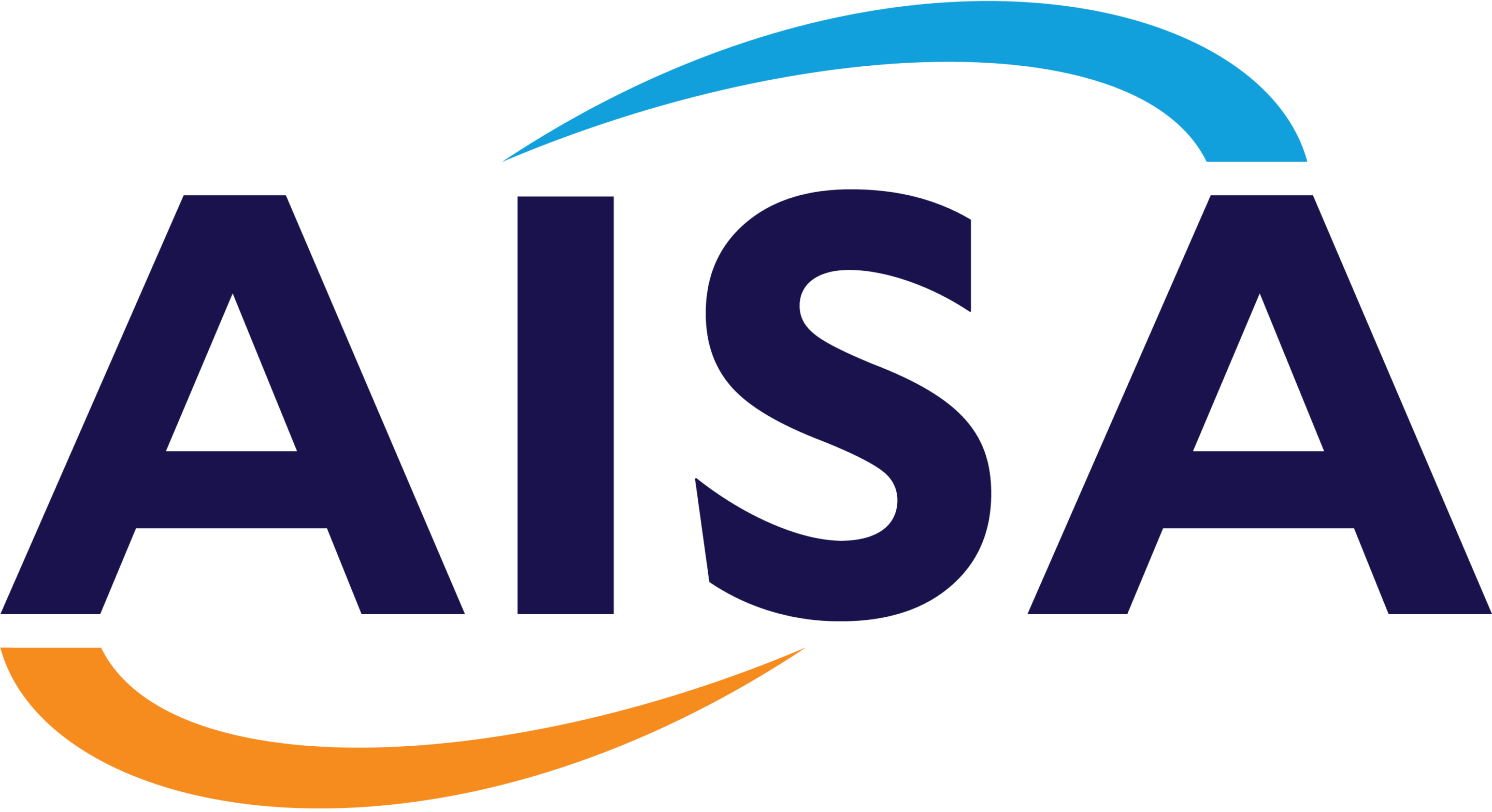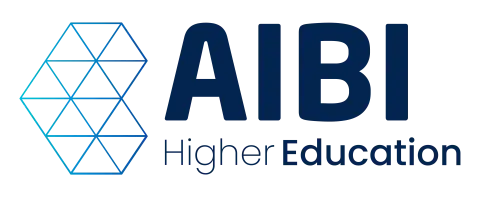Master of Business Administration in
Digital Transformation
CRICOS: 117715D • Course ID: CRS1401722
What is the MBA in Digital Transformation?
The MBA in Digital Transformation at AIBI Higher Education is designed for forward-thinking professionals who want to lead businesses through the digital age. This program equips students with the skills to drive innovation, leverage emerging technologies, and manage digital change across various industries.
Through a practical and industry-focused curriculum, students will explore AI, data analytics, cybersecurity, digital strategy, and leadership in a tech-driven world. Whether you’re looking to future-proof your career, lead digital projects, or drive business transformation, this MBA will prepare you for success in the evolving digital landscape.
Learning Outcomes
Graduates of the Master of Business Administration (Digital Transformation) will develop the expertise and leadership skills needed to navigate and drive innovation in a rapidly evolving digital landscape.
- Critically evaluate and apply on contemporary business issues, theories, and practices in environments that are complex, uncertain, and digitally transformative
- Apply design thinking and analytics tools to develop innovative solutions to business problems that have a positive social, environmental, and economic impact over the long term.
- Demonstrate authentic and inclusive leadership skills and technology expertise, with an understanding of the legal, ethical, social, economic, and environmental implications of digital transformation in national and global business contexts.
- Apply advanced personal and interpersonal skills, including critical thinking, team collaboration, self-awareness, argument formulation, reflection, inclusion, consulting, and persuasive oral, written and professional communication, in a variety of team settings
- Integrate multidisciplinary theories and authentic practices, as well as maintain and expand the currency of professional workplace practices.
- Apply research principles and methodologies to complex business problems and make deliberative judgements to inform the development of sustainable business practices.
Study Mode
On Campus
Campus Locations
Sydney, Melbourne, Brisbane, Perth
Student
Domestic, International
Course Duration
2 years full time, up to 4 years part time for domestic students only.
Next Start Date
Fees & Scholarships
Industry Insights
Trillion Dollars
Faster
Business Model Change
Career Pathways – MBA in Digital Transformation
The demand for digital transformation leaders is rapidly growing across industries, offering high-impact roles, competitive salaries, and exciting career opportunities. With businesses increasingly investing in AI, big data, cloud computing, and digital strategy, graduates of the MBA in Digital Transformation will be well-positioned for leadership roles in innovation, technology, and business strategy.
Potential Career Outcomes & Salaries in Australia
- Digital Transformation Manager – Avg. Salary: $140,000
Lead and implement digital change initiatives, driving business growth through technology and innovation. - Innovation & Strategy Consultant – Avg. Salary: $130,000
Advise organizations on emerging technologies, digital strategy, and business model transformation. - Chief Digital Officer (CDO) – Avg. Salary: $180,000+
Shape and oversee an organization’s digital strategy, transformation, and technological integration. - Business Intelligence Analyst – Avg. Salary: $110,000
Use data-driven insights to optimize business processes and drive strategic decision-making. - Enterprise Solutions Architect – Avg. Salary: $150,000
Design and implement scalable technology solutions to support business transformation. - Technology Project Manager – Avg. Salary: $135,000
Lead cross-functional teams in delivering complex digital projects and innovation-driven initiatives.
With digital transformation reshaping industries, graduates of this program will be equipped to lead change, drive innovation, and future-proof their careers in a highly competitive job market.
Complimentary Student Memberships

AISA Membership
AISA is a nationally recognised peak body for cyber security professionals. AIBI HE students who study cyber security are eligible for a free AISA membership.

ACS Membership
ACS is the professional association for Australia’s technology sector and the largest community with 48,000+ members. All AIBI HE students are eligible to sign up for their free ACS membership.
Course Subjects
MBA (Digital Transformation)
Course Structure Exit Points: GCBA and GDBA
AQF Levels 8 & 9
The table below provides essential information for each core subject, code and title, description, and assessment tasks.
The workload is the same for all subjects:
3 timetabled hours per week (lectures and tutorials) and 9 personal hours of study for a total of 12 hours per week.
Year 1
MKT601 Digital Marketing Management
Explore the latest digital marketing trends, tools, and strategies to engage customers effectively. Learn how to leverage SEO, content marketing, social media, and analytics to drive business growth and brand awareness.
MGT601 Organisational Behaviour
Understand how individuals and groups behave within organizations and how leadership, culture, and motivation impact workplace dynamics. Develop skills to improve team performance and foster a positive work environment.
BUS705 Managing in a Digital World
Learn how digital technologies are reshaping businesses and management practices. This course covers digital transformation, emerging technologies, and strategies to navigate the fast-changing digital landscape.
BUS607 Business Model Innovation and Strategy
Explore how business models evolve and drive value in today’s dynamic environment. This course examines business model innovation, strategic implementation, and the influence of digital transformation and the Fourth Industrial Revolution. Learn to design, evaluate, and adapt business models through real-world examples and interactive case studies.
MGT603 Operations Management
Gain insights into designing, managing, and optimizing business operations for efficiency and productivity. Learn about supply chain management, process improvement, and quality control techniques.
BUS603 Accounting for Decision Making
Develop an understanding of financial and managerial accounting principles. Learn how to interpret financial reports and use accounting data to make informed business decisions.
PMT701 Agile Project Management
Master agile methodologies, including Scrum and Kanban, to improve project flexibility and adaptability. Learn how to manage teams, stakeholders, and deliverables in fast-paced business environments.
BUS707 Digital Business Transformation
Discover how businesses integrate digital technologies to enhance operations and customer experiences. Explore case studies on digital disruption, automation, and innovation in various industries.
Year 2
BUS706 Analytics and AI
Learn how data analytics and artificial intelligence drive business insights and decision-making. Explore AI applications in automation, customer insights, and predictive analytics.
CYB701 Cybersecurity Fundamentals
Understand key cybersecurity principles, threats, and risk management strategies. Learn how businesses protect data, mitigate cyber risks, and ensure regulatory compliance.
DAT724 Data Visualization and Communications
Develop skills to analyze complex data and communicate insights effectively. Learn visualization techniques using tools like Tableau and Power BI to support data-driven decision-making.
BUS701 Implementing Change for Digitalisation
Explore strategies for leading and managing digital transformation initiatives. Learn about change management frameworks and how to drive adoption of new technologies in organizations.
Elective - Choose from postgrad level (600/700) subject
Students must select one or more electives from approved postgraduate-level (600/700) subjects. These subjects allow specialization in areas such as leadership, finance, marketing, or technology, providing flexibility to align studies with career goals.
Elective - Choose from postgrad level (600/700) subject
Students must select one or more electives from approved postgraduate-level (600/700) subjects. These subjects allow specialization in areas such as leadership, finance, marketing, or technology, providing flexibility to align studies with career goals.
CAP701 -1 Capstone Project Part 1
Apply your knowledge to a real-world business problem by conducting research, developing strategies, and proposing innovative solutions. This first phase focuses on planning and analysis.
CAP701 - 2 Capstone Project Part 2
Continue your capstone project by implementing and evaluating your proposed solutions. Present your findings and recommendations in a professional business report or presentation.
Choice of Electives
Electives - ICT709 - Cloud Computing
Learn the fundamentals of cloud computing, including infrastructure, security, and service models (IaaS, PaaS, SaaS). Explore how businesses use cloud solutions to enhance scalability, efficiency, and security.
Electives - MGT604 - Leadership For Good
Explore ethical leadership principles and responsible business practices. Learn how leaders can drive positive social impact, promote corporate sustainability, and foster inclusive workplaces.
Electives - BUS702 - Business for Social Impact
Understand how businesses contribute to social and environmental well-being while maintaining profitability. Learn about corporate social responsibility (CSR), sustainable business models, and impact-driven enterprises.
Electives - BUS703 - Entrepreneurship and Innovation
Develop entrepreneurial skills to identify opportunities, create business models, and launch new ventures. Learn how to foster innovation within organizations and manage business risks.
Electives - BUS604 - Building Global Capability
Explore strategies for expanding businesses into international markets. Learn about cross-cultural management, global supply chains, and international trade regulations.
Electives - MGT602 - Managing Diverse Talent
Understand the challenges and benefits of managing a diverse workforce. Learn strategies to create inclusive work environments, improve employee engagement, and leverage diversity for business success.
Entry Details
Fees & Scholarships
Domestic students may be eligible for FEE-HELP; a loan scheme offered by the Australian Government that assists eligible students in paying for their higher education tuition fees.
Speak to our team regarding our course fee structure, or scholarship options.
Eligibility Criteria
- Be aged 18 years or over at the time of course commencement.
- Successful completion of at least a Bachelor degree from an Australian higher education or equivalent.
Fees & Scholarships
Contact our team regarding our course fee structure, and payment options.
Eligibility Criteria
Academic IELTS 6.0 (Speaking & Writing: minimum band 6.0 and Reading & Listening: minimum band 5.5) or equivalent. Overseas and domestic applicants who have not studied at the secondary level in English, seeking admission into an AIBI HE course will need to demonstrate the required level of English proficiency.
Education:
Successful completion of at least a Bachelor degree or equivalent.
For more information on admissions criteria, visit our Applying to AIBI HE page.
Fees, Financial Assistance, and Your Investment
Pursuing an MBA in Digital Transformation is not just a commitment to your future—it’s a strategic investment in your career. We understand the importance of financial planning, so let’s break down the fees and available support options.
Master of Business Administration (Digital Transformation)
The program consists of 16 units delivered over 6 trimesters.
Introductory Pricing (First Two Intakes)
To support the launch of the program, we are offering an introductory fee discount:
INTERNATIONAL STUDENTS:
- Discounted Tuition: $2,363 per subject
- Total Introductory Cost: $37,800*
Standard Fee
- Standard Tuition: $3,375 per subject
- Total Estimated Cost: $54,000
DOMESTIC STUDENTS:
Standard Fee
- Per Subject: $2,687 per subject
-
Total Fees: $43,000
Fees for Scholarship Students
- Face to Face – Scholarship Fees per subject: $2,257
- Face to Face – Scholarship Fees Total: $36,120
- Online – Scholarship Fees per subject: $1,937
-
Online – Total Scholarship Fees Total: $30,100
We offer a range of financial support options, including:
- Scholarships & Discounts for eligible students.
- Corporate Sponsorships for professionals supported by their employers.
Speak to a member of our team for more information. https://aibi.edu.au/contact-us/
How to Apply
1
Choose Your Degree
Take your time and pick the course that excites you the most. You can always speak to our team before making a decision.
2
Check Admissions Criteria
Make sure you’ve got everything you need to apply by double-checking our admissions criteria. It won’t take long, we promise!
3
Apply
Fill out your application and hit submit! Our team will check over your application and get back to your as soon as possible.
4
Complete Enrollment
Wahey, you’re almost there!
We’ll just have to get a few final details before you’re officially an AIBI HE student.
FAQ
Will all classes be in-person?
- All classes will be conducted in-person for international students, on a student visa or other temporary visa class.
- 100% online classes are available for domestic students. Domestic students are Australian/NZ citizens and Australian permanent residents.
How long is each academic year?
Each academic year includes three trimesters, each lasting 11 weeks of teaching followed by one exam week.
What will my class schedule look like?
We normally hold your classes across 2 days. For instance:
Tuesday: Classes from 9 am – 12 pm and then 1 pm – 4 pm or 1 pm – 4 pm and then 4.30 pm -7.30 pm.
Thursday: Class either from 9 am – 12 pm, 1 pm -4 pm or 4.30 pm -7.30 pm.
Can I work while I study?
If you’re an international student, you can work 48 hours per fortnight during ongoing terms, and unlimited hours during holiday breaks.
Domestic students do not have a working cap.
Where are your campuses located?
We have campuses located in Sydney, Melbourne, Brisbane, and Perth.
You can view our campuses online, or request an in-person campus tour.
Is attendance mandatory for orientation?
Yes, your attendance is mandatory for orientation.
You will receive more details on your orientation after you receive your COE.

